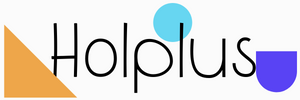In a world where everything is electronic, even the most mundane tasks have become weird. Even the act of taking notes, which once involved pen, paper, and a sense of the importance of remembrance, is now driven by technological advancements, from the traditional pen and paper notebooks to the electronic form that has become so popular today. If you are taking a walk down memory lane, it is no surprise that each generation of technology has had an impact on the way we document our thoughts and actions.
The beauty of paper, and the way in which it can be used to communicate and exchange information in a simple, intuitive, and efficient manner, is something that would make even the most sophisticated and technologically advanced civilization deviate from its course. Yes, paper notebooks are still alive and kicking! And they are still very much in use. Of course, many people these days prefer tablets or mobile phones to write on. Still, paper notebooks are gaining traction for a couple of reasons.
Paper has been around for a long time—as long as humans have been writing. Most people have a love/hate relationship with their writing utensils, and their feelings about their writing utensils have a lot to do with their feelings about paper. While most people think of paper as something that just sits there and gets dusty, many uses for paper may surprise you.
As a heavy fan of paper notebooks, I have noticed that there are a lot of advantages to using them over electronic ones. For one, there are fewer chances of losing things when you write things down on paper. I used to keep a notepad on my desk, but it would get lost among all my paperwork. Instead, I use a bindery board and a bunch of notebooks, which I keep in a drawer. If I lose one, the others are still there. Another advantage is the ability to create notebooks for specific projects. You might want an index for all the different kinds of people you meet or a list of the books you read last year.
Paper is a lot more environmentally friendly than plastic, and it is also a lot cheaper to use, which are two of the main advantages of paper over plastic. Plastic can be hard to recycle due to its materials, and it is also a lot more expensive to produce than paper, which is the main reason you should be using paper notebooks.
These notebooks are a staple in every classroom, and they are also a great tool for modern professional life. Paper notebooks are known for their durability, portability, and environmental friendliness. Paper notebook manufacturers have come up with a variety of designs, binding types, and binding accessories to meet the needs of different users and different types of paper. The durability and unique characteristics of paper notebooks make them a wise choice for people on the go.
If you have a lot of homework assignments, you won’t want to risk damaging your laptop by leaving it on your desk and picking it up often. So, what should you do? Leave all your work on your desk and buy a nice notebook to write all the assignments in! A single sheet of paper is easier to write on, you can take notes anywhere, and they’re less likely to get damaged if you put them in a backpack for a day’s worth of school.
One of the great things about paper notebooks is that they are affordable, environmentally friendly, and they don’t produce any unwanted waste. Paper notebooks are great for taking notes, journaling, keeping to-do lists, and many other ways of scribbling down ideas, thoughts, and bits of information you want to keep by your side.
Paper notebooks have several advantages over electronic alternatives, one of which is that they are more sustainable. According to a study from the University of California, Irvine, of the world’s paper manufacturers, 80 percent of paper is used by only one percent of the world’s population. These large paper users include the government, corporations, and universities since paper notebooks have good memories and are easy to reuse once they have been filled.

